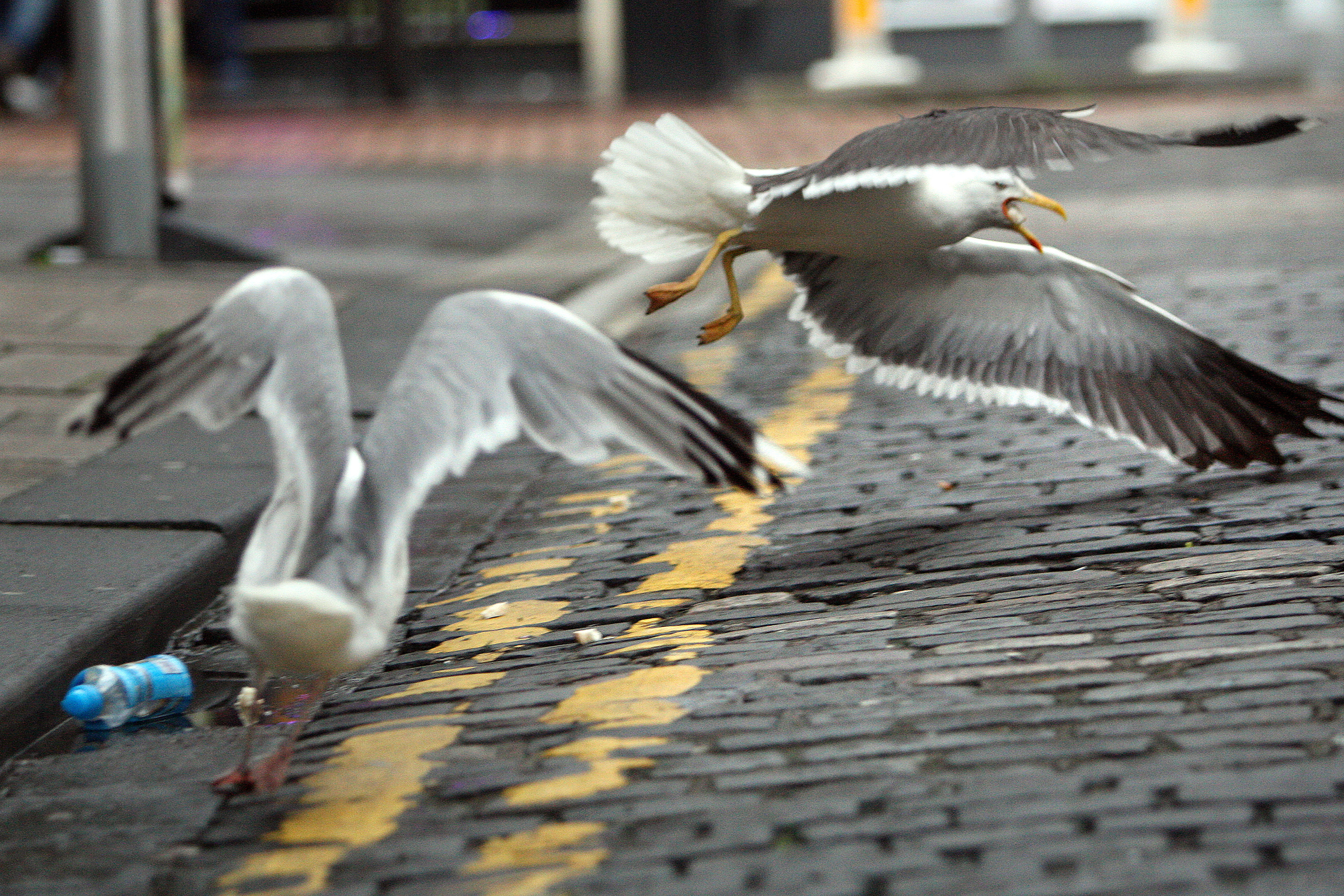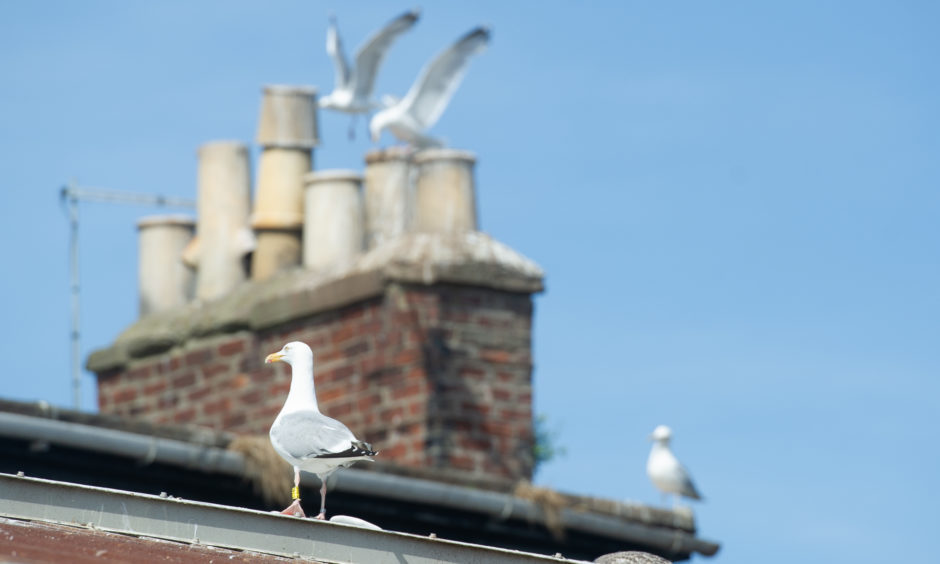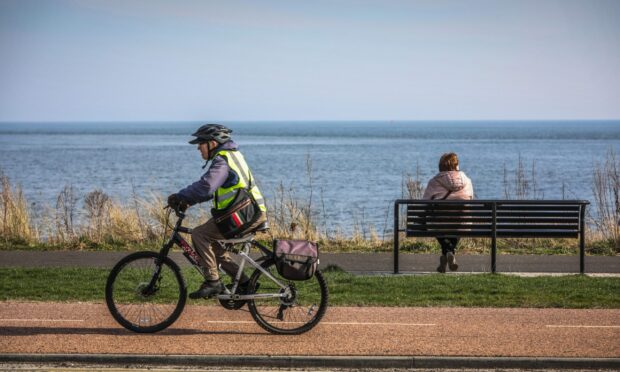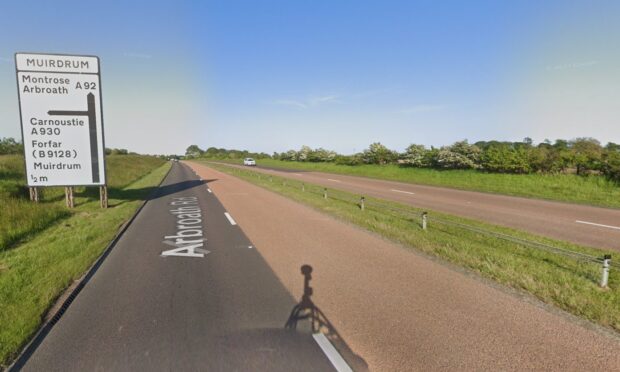Angus Council is battling a rising tide of complaints against menacing gulls.
The figures, revealed in a Freedom of Information request, have shown a surge in the number of potential attacks taking place across the county.
Gull complaints have gone up in each of the past three years in Angus with 325 in 2016-17, 381 in 2017-18 and 451 in 2018-19.
Liam Kerr, Scottish Conservative MSP for the North East, said: “The gull menace costs hard-up councils tens of thousands of pounds annually and makes some people’s lives a misery.
“It gets worse every year, as these figures show.
“As we are heading into seagull season, I’d urge people to lock down their general waste bins.
“Open bins are just an invitation for these birds to breed.”
Various measures have been deployed by local authorities to try to deter the winged menace, including an Angus nest removal scheme and the use of hawks in town centres such as Stonehaven.
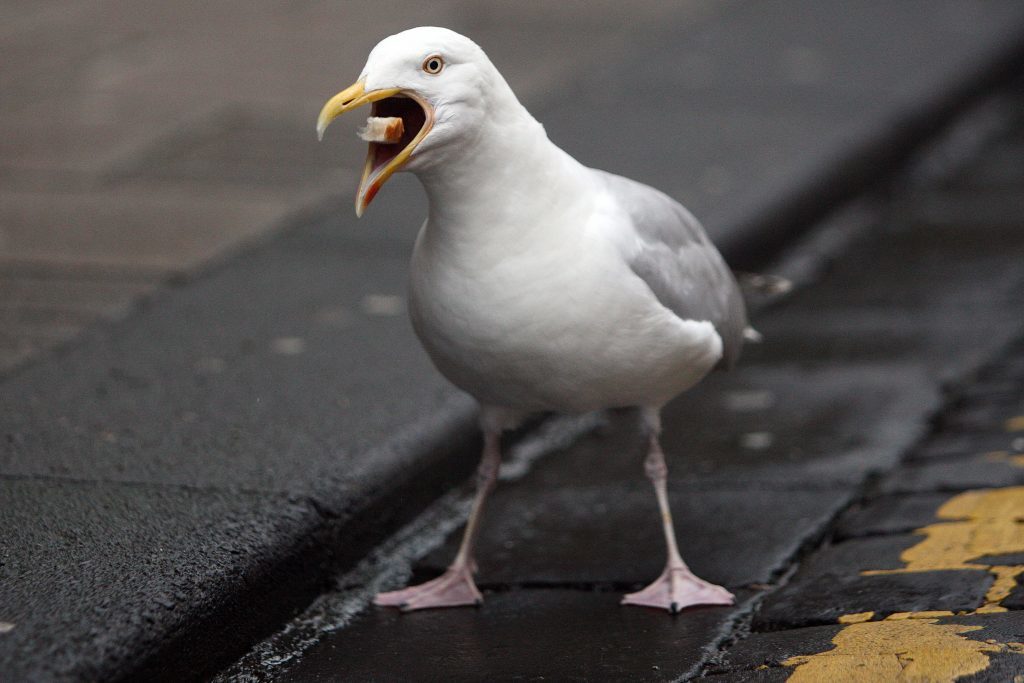
But the problem remains a challenge for cash-strapped councils, with Angus alone spending hundreds of thousands of pounds since 2011 dealing with gulls.
The figures relate to the number of egg/nest removal treatments requested by members of the public which has been provided free of charge since 2009.
Angus Council said it operates a free seasonal gull egg and nest removal service that is available to the owners or tenants of residential properties affected by nesting gulls.
However, once eggs hatch and the gulls start swooping to protect their chicks, the local authority cannot take any action.
The gestation period for the eggs to hatch is about three weeks.
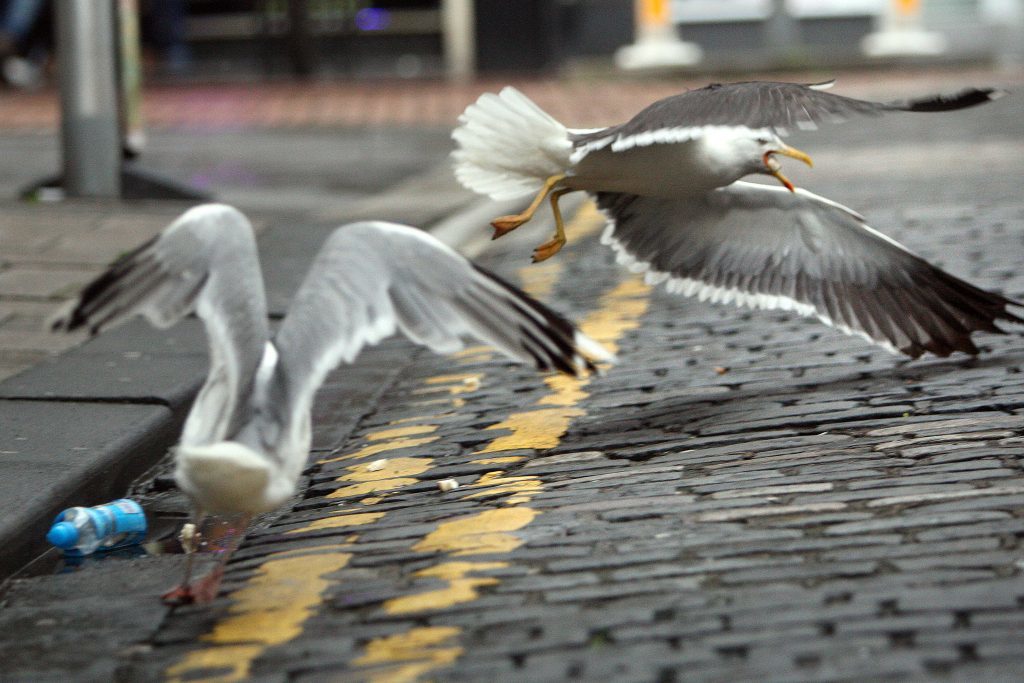
Adult pairs of gulls can rear up to three broods over a breeding season – which is usually between the beginning of April and the end of June.
A spokesman for Angus Council said: “For public health and safety we will remove seagull nests and eggs free of charge from domestic properties during the spring when gulls are typically building nests or have eggs in a nest.
“Once the chicks leave the nest, parent gulls can become very aggressive in a bid to protect them.
“Unfortunately, there is nothing the council can do to prevent this as the birds are protected by law.
“The only thing that can be done is to avoid the chicks as much as possible and wait until they have left the area.”
Suspicion rests on people feeding the birds, thereby encouraging them to stay in the area.
